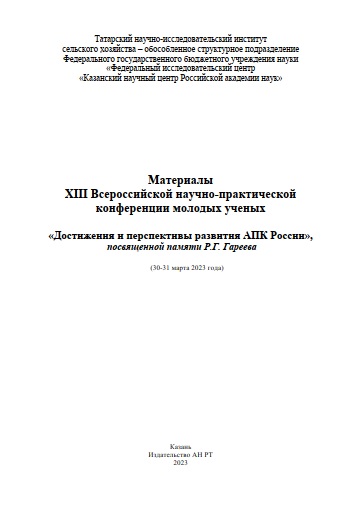The creation of cost-effective cell factories for highly efficient production of proteinases is an urgent task for modern biotechnology. In this work, the bacilisin and bacteriocin genes in the genome of the Bacillus pumilus strain 3-19 were inactivated using the CRISPR-Cas9 system. The growth dynamics and proteolytic activity of the resulting mutant strains were studied.
Bacillus pumilus, proteinases, CRISPR-Cas9, gene inactivation, antimicrobial peptides.
1. Efficient genome editing in Bacillus licheniformis mediated by a conditional CRISPR/Cas9 system / Y. Li [et al.] // Microorganisms. 2020. №8. P. 754.
2. Development and application of a highly efficient CRISPR-Cas9 system for genome engineering in Bacillus megaterium / P. Hartz [et al.] // Journal of Biotechnology. 2021. №329. P. 170-179.
3. Toymentseva A. A., Altenbuchner J. New CRISPR-Cas9 vectors for genetic modifications of Bacillus species // FEMS microbiology letters. 2019. №366. P. fny284.
4. Optimization of Electroporation Conditions for Bacillus pumilus 3-19 Strain / I. V. Danilova [et al.] // BioNanoScience. 2022. №12. P. 752-756.
5. Modification of substrate-binding site of glutamyl endopeptidase from Bacillus intermedius / I. V. Demidyuk [et al.] // Protein Eng Des Sel. 2004. №17. P. 411-416.





